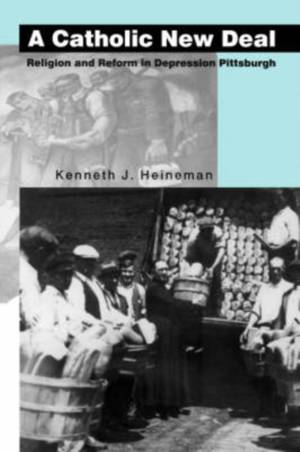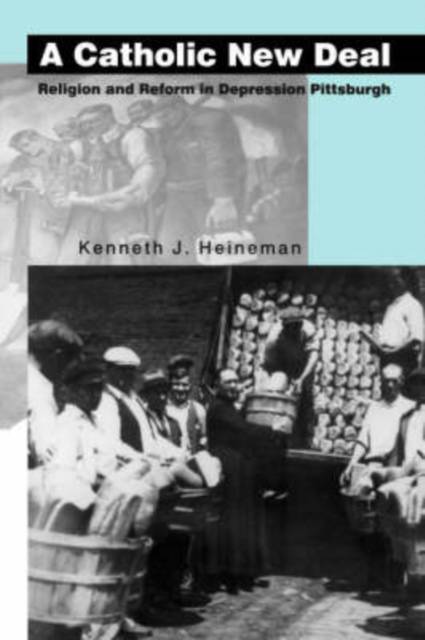
- Afhalen na 1 uur in een winkel met voorraad
- Gratis thuislevering in België vanaf € 30
- Ruim aanbod met 7 miljoen producten
- Afhalen na 1 uur in een winkel met voorraad
- Gratis thuislevering in België vanaf € 30
- Ruim aanbod met 7 miljoen producten
A Catholic New Deal
Religion and Reform in Depression Pittsburgh
Kenneth J HeinemanOmschrijving
Our popular image of the era of the Great Depression is one of bread lines, labor wars, and leftist firebrands. Absent from this picture are religiously motivated social reformers, notably Catholic clergy and laity. In A Catholic New Deal, Kenneth Heineman rethinks the religious roots of labor organizing and social reform in America during the 1930s. He focuses on Pittsburgh, the leading industrial city of the time, a key center for the rise of American labor, and a critical Democratic power base, thanks in large part to Mayor David Lawrence and the Catholic vote.
Despite the fact that Catholics were the core of the American industrial working class in the 1930s, historians (and many contemporary observers) have underestimated or ignored the religious component of labor activism in this era. In fact, many labor historians have argued that workers could not have formed successful industrial unions without first severing their religious ties. Heineman disputes this, arguing that there would have been no steelworkers union without Pittsburgh Catholics such as James Cox, Patrick Fagan, Carl Hensler, Phil Murray, and Charles Owen Rice. He presents a complex portrait of American Catholicism in which a large number of activist priests and laity championed a distinctly Catholic vision of social justice. This vision was anti-Communist, anti-Fascist, and anti-laissez faire. These Catholics, in turn, helped to make the Democratic Party and the CIO powerful organizations. A Catholic New Deal shows conclusively the important role that religion played in the history of organized labor in America.
Specificaties
Betrokkenen
- Auteur(s):
- Uitgeverij:
Inhoud
- Aantal bladzijden:
- 304
- Taal:
- Engels
Eigenschappen
- Productcode (EAN):
- 9780271028866
- Verschijningsdatum:
- 15/08/1999
- Uitvoering:
- Paperback
- Formaat:
- Trade paperback (VS)
- Afmetingen:
- 152 mm x 229 mm
- Gewicht:
- 449 g

Alleen bij Standaard Boekhandel
Beoordelingen
We publiceren alleen reviews die voldoen aan de voorwaarden voor reviews. Bekijk onze voorwaarden voor reviews.











